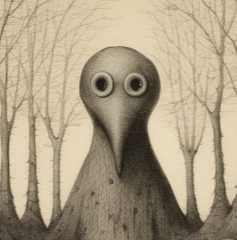- cross-posted to:
- chapotraphouse@hexbear.net
- worldnews@lemmy.world
- cross-posted to:
- chapotraphouse@hexbear.net
- worldnews@lemmy.world
Eiffel Tower lit up to mark change, seen as way of protecting law that decriminalised abortion in 1975.
The French parliament has enshrined abortion as a constitutional right at a historic joint session at the Palace of Versailles.
Out of 925 MPs and senators eligible to vote, 780 supported the amendment, which will give women the “guaranteed freedom” to choose an abortion.
There was thunderous applause in the chamber as the result was announced on Monday; in central Paris, the Eiffel Tower was illuminated to mark the occasion.
The measure had already been passed by the upper and lower houses, the Sénat and the Assemblée Nationale, but final approval by parliamentarians at the joint session at Versailles was needed to effect constitutional change.
The prime minister, Gabriel Attal, told those gathered in the opulent Congress Hall in the palace’s Midi wing: “We are haunted by the suffering and memory of so many women who were not free. We owe a moral debt [to all the women who] suffered in their flesh.
“Today, the present must respond to history. To enshrine this right in our constitution is to close the door on the tragedy of the past and its trail of suffering and pain. It will further prevent reactionaries from attacking women.
“Let’s not forget that the train of oppression can happen again. Let’s act to ensure that it doesn’t, that it never comes this day.”
He added: “I say to all women within our borders and beyond, that today, the era of a world of hope begins.”
Mathilde Panot, an MP from the hard-left France Unbowed, who proposed inscribing the abortion rights in the constitution, told the meeting it was “a promise … for all women fighting [for them] everywhere in the world”.



This is the best summary I could come up with:
The measure had already been passed by the upper and lower houses, the Sénat and the Assemblée Nationale, but final approval by parliamentarians at the joint session at Versailles was needed to effect constitutional change.
The prime minister, Gabriel Attal, told those gathered in the opulent Congress Hall in the palace’s Midi wing: “We are haunted by the suffering and memory of so many women who were not free.
Mathilde Panot, an MP from the hard-left France Unbowed, who proposed inscribing the abortion rights in the constitution, told the meeting it was “a promise … for all women fighting [for them] everywhere in the world”.
During the national assembly debate on the law in January, the justice minister, Éric Dupond-Moretti, told MPs that abortion rights were not simply a liberty like any other, “because they allow women to decide their future”.
Once the two houses had agreed the wording of the legal text, Macron had the choice to hold a national referendum or call a joint parliamentary “congress” made up of 577 MPs and 348 senators at Versailles where it required three-fifths of votes cast to pass.
Monday’s session is the first to be held to change the constitution since 2008, when Nicolas Sarkozy took steps to modernise French institutions, including limiting presidents to a maximum of two consecutive five-year terms in office.
The original article contains 707 words, the summary contains 223 words. Saved 68%. I’m a bot and I’m open source!